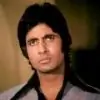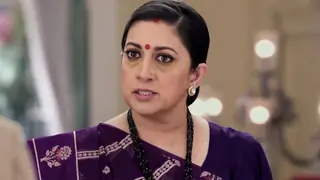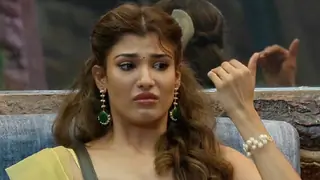On one of the thread some one commented on having no mention of Salil Chowdhary & Anil Biswas so started one yesterday and one today..please feel free to add more..this is from down melody lane
.
| Anil Biswas was born on 7th July 1914 in the Barisal District Town of East Bengal. During childhood he displayed talent in tabla playing and singing. He also used to appear in a local amateur theatre as a child star. In his youth days, he actively participated in the freedom movement and faced imprisonment. The artistic urge induced him for moving to the cultural hub – Kolkata. On approaching Qazi Nazrul Islam's Indian Theatre Association he was appointed at the Rang Mahal Theatre as music composer. He also performed occasional stage acting. For a short while he was also associated with the Gramophone Company. In 1934 he moved he moved to Bombay where he seek an employment with the Eastern Art Syndicate. He was associated in composing music for 'Baal Hatya' and 'Bharat ki Beti'. His first independent music composition was for 'Dharam ki Devi' (1935) in which he also acted and sung 'Kuch Bhi Nahin Bharosa..'. In the following year he composed music for Director Ram Daryani's and Golden Eagle Productions in association with the famous theatre stage music composer Jhandey Khan Sahib. After joining Sagar Movietone in 1936 Anilda initially assisted composer Ashok Ghosh in films 'Manmohan' and 'Deccan Queen'. These were produced mainly to compete with the New Theatres's films with K.L.Saigal. Surendra's song in film 'Deccan Queen', 'Birha Ki Aag Lagi Morey Man Mein..' in response to Saigal's song in Devdas 'Balam Aao Baso Morey Man Mein..'. These were followed by his exclusive music composition 'Jagirdar' in 1937 with Zia Sarhady's songs. Surendra and Bibbo were singing stars at the Sagar Movietone. 'Hum Tum Aur Woh' was his next film in 1938. In the year 1940, Mahboob directed 'Ali Baba' in Urdu and Punjabi versions. Not knowing Punjabi, Anil Biswas was initially reluctant in composing music for the Punjabi version, but on being criticized through press for being Bengali, he took the challenge with the help from the song writers Shah Aziz, Arshad Gujrati and the dialogue writer Lala Yaqub. Dr. Safdar 'Aah' Sitapuri wrote songs for the Urdu version. Anilda experimented with English 'cantala' where one line overlaps the other in contra-melody. Mahboob used to call Anilda as 'Bangali' and Anil called him 'Mawali'. Mahboob was 8 years elder to Anilda. Dancing actress Sardar Akhtar and singer Wahidan Bai of Agra acted in 'Ali Baba'. Later Mehboob Khan married Sardar Akhtar as his second wife. Asha Lata was also an actress at Sagar. Anil Biswas married her but it could not last as a life long partnership and was snapped by mistrust. Asha Lata had two sons and daughter - Shikha Vohra. In 1961 her elder son who was much loved by father Anil died in an accident. Coming back to 'Ali Baba' - it's music and songs were much liked by the era cine-goers of that era. Sagar Movietone was merged in 1939 with the Yusuf Fazalbhoy of RCA's newly established National Studios. Inspired by MGM's 'The Good Earth' (1937) and Mehboob produced 'Aurat' (1940) which was re-made by him in 1957 as 'Mother India' (Color). Cast of 'Aurat' comprised among others Surendra, Sardar Akhtar, Yaqoob and singing star Jayoti. Mehboob Khan desired that music for 'Aurat' be composed on the pattern of 'Ali Baba'. The story of 'Aurat' was based on Rural India life style whereas 'Ali Baba' was an Arabian Night fantacy. Anilda declined do it that way. Anilda also decided to sing 'Kahey Karta Der Barati..' himself – which was not liked by Mehboob. Both were adamant in their views and they stopped talking with each other. On lunch they would converse through Fareedoon Ji – the cameraman. Anilda prevailed and songs of 'Aurat' were very much appreciated. Anilda used to occasionally sing in his films e.g. Aasra (1941) 'Sanjh Bahi Banjare..', Bahen 'Kiye Ja Sab Ka Bhala..' and Apna Paraya (1942) 'Gori Kahe Khadi Angna..'. Another famous production of National Studios was 'Roti'. Akhari Bai of Faizabad acted in it. For songs, the studio was in contract with the HMV but Akhtari Bai (at that time) was an artist of Megaphone Gramophone Company. Four songs of Akhtari Bai composed by Anil Biswas were therefore deleted from film 'Roti'. In 1948 came his another musical film 'Anokha Pyar'(1948) with songs of Mukesh and Meena Kapoor. She had earlier sung to the music of S.D.Burman 'Kisi Se Meri Preet Lagi..' and a duet with Chitalkar in film '8 Days' (1946) 'Ek Nai Kali Sasural Chali..'. From the paternal side Meena belongs to 'Bhaun' in Potohar, Pakistan. Later he married her. She being not available for recording, Meena's film songs appear on gramophone discs in the voice of Lata Mangeshkar. Film producers ignored the rich voice of Meena. Her few songs appear in Anilda's films e.g Lajawab 'Jab Kari Baderia..', Do Sitarey, Mehman 'Man Ka Panchhi..' , Pardesi 'Rum Jhum Barse Pani Aaj..' finally in Chhoti Chhoti Baatein 'Kuchh Aur Zamana Kehta Hai..'. Suraiyya sang for Anilda's film 'Gajrey' (1948) and subsequently in 'Jeet', 'Do Sitaare' and 'Waris'. After listening to Lata's song in film Gajrey 'Baras Baras Badri Bhi Baras Gai..', music director OP Nayyar visited Anilda and respectfully congratulated him "Yeh aap hi ka kaam hai". The decade of fifties witnessed the climax of film music evolved by Anilda. After that the poetic base of the songs followed a new trend - changing from common values to individual feelings. Anilda deployed the western instruments but generally played local tunes on them. Observing that the nursery cultivated by him was harvesting a different stuff and being dejected with the tragic death of his younger brother and elder son in the year 1961, Anilda decided to leave the commercial city of Mumbai and shift to Delhi for devoting mainly to academic work. He was appointed vice-chancellor of Jawaharlal Nehru University for about 2 years. He also remained Chief Producer (Sugam Sangeet) at AIR, Delhi during the 1963 – 1975 period. He occasionally composed for films like Sautela Bhai (1962) with Lata's song 'Ja Mein Tosey Nahin Boloo..'.and Motilal's last film Chhoti Chhoti Baatein (1965). Anilda later scored the music for Doordarshan's pioneering TV series 'Hum Log' (1984) and a number of documentaries for the Films Division. The musical pattern of present day films has a global base and may represent cultural aspects of a minority of urban elite. It is not in unison with the heartbeats of the countryside masses. Present day music is like a beverage but has no sedative effect or tonic action. It agitates feelings and does not induce harmony. Their impact on the civil society is obvious. Anilda was 89 when he departed from us. Source: Article By A R Qureshi, Pakista |
























